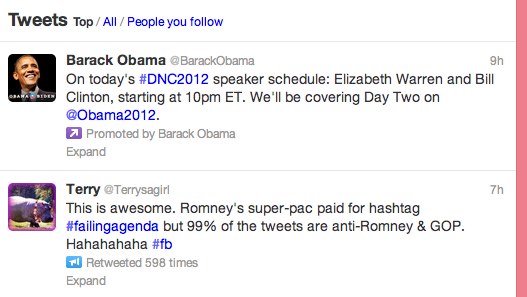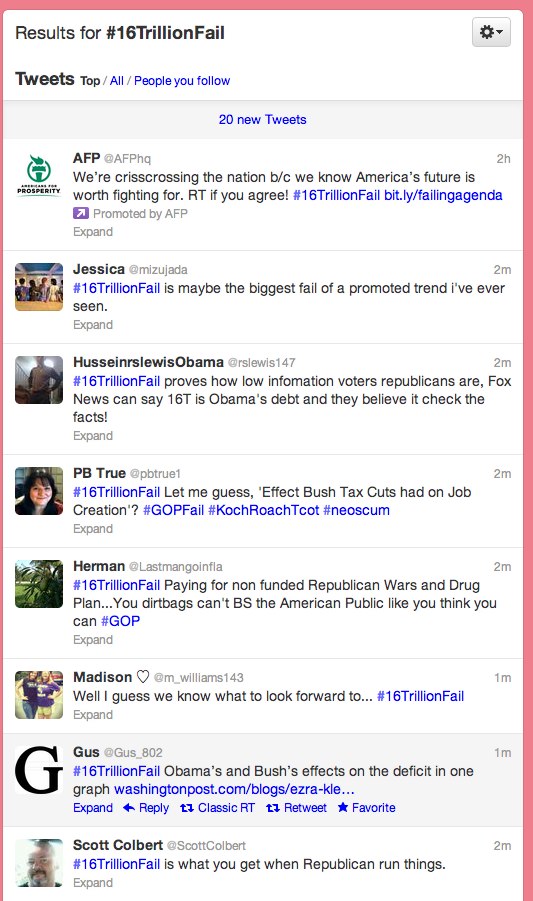As a Twitter user, I have never been a huge fan of promoted hashtags. I get that it is a way to buy exposure and discussion around a topic or a brand, and I certainly get that Twitter deserves to try to make money, but I always found the anchor Tweet pinned to the top of any search for a hashtag obnoxious. I recall trying to follow Twitter chatter at a Radian 6 user conference last year, only to have my search page topped by a paid-for Tweet every time. It did not make me think that company was very likable (though I hope I was wrong).
I really don’t want to hate the idea around these sponsored placements, and I don’t think I do. What I have recognized is that one must be careful employing them. In the case of the user conference, it was probably unnecessary when there are several substantive ways to get the ear and confidence of the audience; in fact, it probably would have been cheaper for a flight, hotel and event ticket, though I don’t know that for sure. Being careful means trying to think ahead what might happen when you sponsor a hashtag- will you annoy people? Or even worse, will the people fight back by using the hashtag against you with their own Tweets? We have certainly seen this quite a bit in the corporate world, with varying results.
This came to mind during this week of the Democratic National Convention. Americans For Prosperity, the American SuperPAC (when will we have UltraPACs?), purchased the “#FailingAgenda” hashtag to try to promote the Republican agenda during the Democrats’ marquee event. Why not keep a voice present while the other side is getting the major attention, right?
Wrong. The one thing AFP needed to think of but apparently didn’t is that people Tweet- and, according to my friend Tom Webster at Edison Research, a plurality of Tweeters are Democrats. So, the opposition came out with guns loaded and firing away. Every time I looked at this supposedly conservative media buy, I saw it getting successfully trolled.
Later, I saw that the Obama administration, through @BarackObama, had purchased the hashtag for itself, while AFP purchased a new one, “#16TrillionFail,” which was getting similarly trolled, as the screenshot below shows:
So, what happened here? Granted, there may have been other goals, such as driving people to AFP’s site and requesting other actions there, that may have been successful- maybe it’s not even a “screwup” based on the goals AFP may have had. But from a public relations standpoint, it’s a reminder that spending money on a medium you can’t control very well is risky even in the best of times, and extremely dangerous if you represent a controversial organization or topic.
I’m not going to call this a complete fail without knowing all the facts (and I hoped I kept political bias out of this), but it was certainly interesting to watch.
(Side note: why does Twitter recommend “@taylorhicks” as a related search term? Yes, he performed at the Republican Convention last week, but… slightly better than random is all I can say).
*Yes, I really hate the “Social Media Lessons from…” blog posts. What a tired, link-baiting concept. Not everything has a “social media” lesson. I’d rather be boring than trite.
——————————————————-
Bonus content: Word of the day: “discoutrage” – to discourage outrageous behavior

